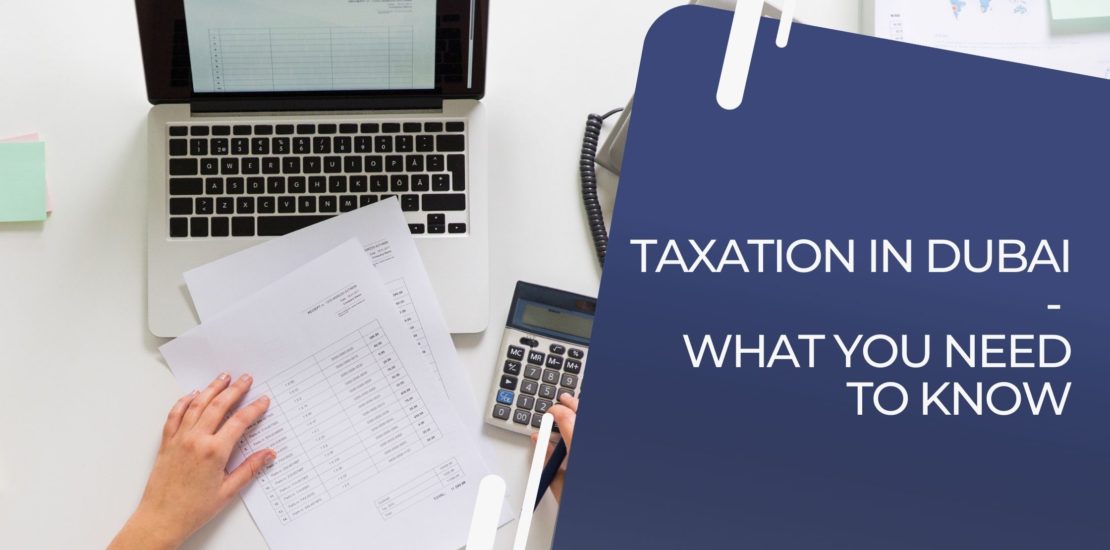- January 30, 2022
- Posted by: Philip Smith
- Category: News/Blog

Taxation is coming to Dubai – here is what you need to know!
Excise Tax Commences with Registration for VAT also opens from 1st October 2017
After many months of discussion and an almost daily circulation of rumors on this somewhat controversial topic, taxation has officially been introduced in the United Arab Emirates. This is, of course, groundbreaking news for a region that has always benefited from tax-free living, one of the many reasons that many of us come to Dubai and the UAE as a whole. Here we take a look at what this means in real terms by outlining who is to be taxed, how much tax is to be paid and how this will affect us.
Excise Tax
One form of taxation has already been implemented in the UAE with excise taxes being levied on some products as of 1st October 2017. This tax only applies to certain products such as cigarettes, alcohol, confectionery and soft drinks. To put this into everyday terms, we made a short visit to our local Zoom supermarket this morning and quickly saw the immediate effects of this levy – the price for a pack of 20 Marlboro Light cigarettes doubled from AED 10 to AED 20 as did the price of a Red Bull Energy drink, which increased from AED 6 to AED 13 – more than a 100% increase!
VAT in the UAE
The Federal Tax Authority has opened its register for VAT, allowing businesses to register for VAT three months in advance of its implementation date of 1st January 2018. VAT will be effective at a rate of 5% from this date, meaning all businesses operating in the UAE must register for VAT (provided they pass the threshold of AED 375,000) or face potential penalties (exact details of which are still unconfirmed). It is this tax that is currently the biggest talking point in the region.
As with the excise levy, VAT, which is effectively a tax on good and services, is passed onto the consumer and they are liable to pay the tax based on the price of the goods or service be sold. In Dubai, this will be introduced at a rate of 5%, lower than in many countries across the world but significant enough for a region that appears to be getting more expensive every day despite being historically tax-free.
It should be added that VAT will however not be added to all goods. Everyday essential items such as groceries and medicines will not be subject to VAT taxation (there is a list of almost 100 non-taxable goods and services). It is certain that non-essential items such as home appliances, computers, mobile phones, perfumes etc will increase in price, however – so best to get that Christmas shopping list in early!
Will the UAE become more expensive for tourists and residents?
In short, yes. Tourists will not be exempt from taxation as they are a major source of revenue for the UAE as a whole and in Dubai in particular. The cost of living will also increase for many residents of the UAE especially those who like to dine out or have a lifestyle that many of us have become accustomed to when living in the UAE.
The Ministry of Economy, however, has noted that the tax rate is “deliberately low so that VAT is a limited burden on all consumers.” This remains to be seen.
Will companies be taxed?
There is a taxable threshold of AED 375,000, meaning any business that provides good or services (taxable) with a revenue in excess of this value, are subject to VAT and will need to register for VAT before 1st January 2018. Companies will also need to file tax returns every three months.
It is recommended to get this process underway well before the implementation date of 1st January 2018. At worst, penalties can and will be charged for not registering for VAT with perhaps even larger fines or imprisonment for evasion. Companies should strongly consider hiring a tax professional and/or accountants to deal with all of the requirements for both the registration and compliance aspects of the new tax law stipulations. This will alleviate such issues and make sure companies are prepared for what is to come.
Corporation tax, perhaps the greater evil of the two, is however not being implemented. Certainly good news for the huge number of local and international corporations setting up and running a business within the UAE. A smart move from the government, perhaps for fear of an outcry from such corporations and/or a potential mass exodus of business from the region.
How will taxation affect the UAE property market?
This is perhaps the question you have all been waiting for and is of course one which ties in directly with our core business at Your POA Dubai. We are already getting asked this question on a daily basis from tenants and landlords alike. The Ministry of Finance has been quite slow in providing specific details on this, however, the likely sequence of events is summarised below:
Tax for Tenants
There will be no tax levied on residential property lettings. In other words, UAE tenants of residential properties will not have the extra 5% added to their tenancy contract value. This is, of course, good news for many UAE residents, who still choose to rent properties in Dubai and further afield. Rental prices have dropped significantly in Dubai over the last year or more (in some areas, by more than 20% of this time last year). The last thing tenants will want is this drop being substituted by additional charges in the form of tax being levied.
On the flip side, landlords of residential properties are now getting lower rental returns on their investments due to this market shift and with the potential for added VAT costs (which are non-recoverable), they may look to increase their demands on pricing in an attempt to mitigate this loss. The Dubai real estate market, in particular, is constantly changing so it remains to be seen how this will pan out come January 2018.
It is worth adding here that commercial rentals are taxable so there will be VAT added on those renting offices or commercial spaces within the UAE.
Tax for Property Sellers and Buyers
Whilst it is still not entirely clear how this VAT will be implemented within RERA and the Dubai Land Department, it is expected that the authorities will make a distinction between residential and commercial property sales.
It is reported that residential property sales will be exempt from taxation – despite many arguing that the current 4% stamp duty charged by the Dubai Land Department and the AED 2000/AED 4000 Registration Trustees fees are effectively property taxation anyway. Perhaps an indication of current happenings in the UAE property market amid worries that extra charges will lead to a further slowing down of transactions at across the board. This is the case for property re-sales rather than first-time purchases from developers (which may be taxable). Again the direct effects of this will become more apparent early next year when the VAT is implemented fully and especially in relation to the off-plan property market, which is a major source of revenue in the UAE currently.
As with commercial rentals, VAT will also be payable on commercial property sales /purchases, something that is common in other tax jurisdictions across the world.
Where can I get additional Information on this topic?
More information on the implementation and management of taxation in the UAE can be found directly on the website of the UAE Ministry of Finance. There are also a number of high profile laws firms and accountancy practices offering paid workshops on VAT taxation practices and regulations. Perhaps worth a visit for any individuals and companies who are concerned about this news.
The Federal Tax Authority (FTA) has also created a website, providing information on the introduction of excise tax and VAT in the UAE. Details of which can be found here – www.tax.gov.ae
[Headquartered in Dubai, United Arab Emirates, Your POA Dubai is a division of Your Document Clearing Services, a Dubai Economic Development licensed company specializing in representing national and international clients as Power of Attorney for a wide range of property related matters; If you need a Power of Attorney or have questions on any property related matters in the UAE, please email info@yourpoadubai.com or call +971 04 559 0114]
www.tax.gov.ae
https://www.mof.gov.ae/En/budget/Pages/VATQuestions.aspx
http://gulfnews.com/business/economy/vat/vat-in-uae-what-you-need-to-know-1.1992197

